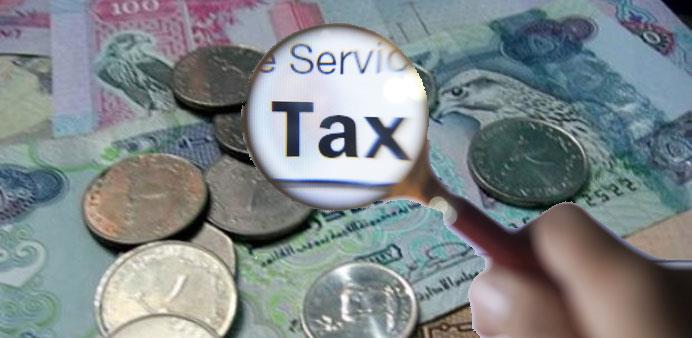
403
Sorry!!
Error! We're sorry, but the page you were looking for doesn't exist.
UAE says introducing VAT delayed by disagreement in region
(MENAFN- Gulf Times) The United Arab Emirates is still studying a proposal to impose value-added tax but its introduction has been delayed by a lack of agreement among neighbouring countries on rates and exemptions, the Ministry of Finance said on Tuesday.
"If the GCC countries reach a final agreement on issues related to the application of VAT, it will be announced directly," the ministry said in a statement carried by UAE state news agency WAM. It did not elaborate on when agreement might be reached.
The six oil exporting states of the Gulf Cooperation Council have been studying the introduction of VAT for years. The plunge of oil prices since last year has slashed governments' income, making it more urgent for them to find new revenue; the UAE is expected this year to post its first budget deficit since 2009.
But VAT has been delayed partly because it is politically sensitive, and partly because GCC governments have been unable to agree on details. Analysts believe that to limit smuggling and damage to the competitiveness of economies, the tax would probably have to be introduced regionally rather than by individual countries at different times.
Once a decision to impose VAT is made, the public will be given "a time horizon of no less than 18 months to prepare for the implementation and discharge the obligations towards the tax requirements", the UAE ministry said.
Seperately, the ministry said it was still studying reforms to increase taxation of corporations in the UAE and that the tax rate was under study. Businesses will be given at least one year to prepare for any changes, it added.
At present there is little corporate taxation outside the oil sector, apart from a 20 percent levy on foreign banks in Dubai. The government has been considering whether to impose a broad corporate tax across the economy.
Though the UAE is one of the financially strongest countries in the GCC, it has been the most aggressive in reforming its finances to save money. This month it cut state gasoline subsidies, allowing prices paid by consumers to rise, and in January Abu Dhabi reduced electricity and water subsidies.
The International Monetary Fund has been advising the UAE to impose taxes gradually to limit any disruption to the economy and gain experience operating a tax collection regime.
In a report this month, the IMF suggested that the UAE consider imposing VAT at a 5 percent rate, a 10 percent corporate income tax, and a 15 percent excise tax on automobiles.
It estimated these steps would ultimately generate revenue equal to 7.4 percent of non-hydrocarbon gross domestic product.
"If the GCC countries reach a final agreement on issues related to the application of VAT, it will be announced directly," the ministry said in a statement carried by UAE state news agency WAM. It did not elaborate on when agreement might be reached.
The six oil exporting states of the Gulf Cooperation Council have been studying the introduction of VAT for years. The plunge of oil prices since last year has slashed governments' income, making it more urgent for them to find new revenue; the UAE is expected this year to post its first budget deficit since 2009.
But VAT has been delayed partly because it is politically sensitive, and partly because GCC governments have been unable to agree on details. Analysts believe that to limit smuggling and damage to the competitiveness of economies, the tax would probably have to be introduced regionally rather than by individual countries at different times.
Once a decision to impose VAT is made, the public will be given "a time horizon of no less than 18 months to prepare for the implementation and discharge the obligations towards the tax requirements", the UAE ministry said.
Seperately, the ministry said it was still studying reforms to increase taxation of corporations in the UAE and that the tax rate was under study. Businesses will be given at least one year to prepare for any changes, it added.
At present there is little corporate taxation outside the oil sector, apart from a 20 percent levy on foreign banks in Dubai. The government has been considering whether to impose a broad corporate tax across the economy.
Though the UAE is one of the financially strongest countries in the GCC, it has been the most aggressive in reforming its finances to save money. This month it cut state gasoline subsidies, allowing prices paid by consumers to rise, and in January Abu Dhabi reduced electricity and water subsidies.
The International Monetary Fund has been advising the UAE to impose taxes gradually to limit any disruption to the economy and gain experience operating a tax collection regime.
In a report this month, the IMF suggested that the UAE consider imposing VAT at a 5 percent rate, a 10 percent corporate income tax, and a 15 percent excise tax on automobiles.
It estimated these steps would ultimately generate revenue equal to 7.4 percent of non-hydrocarbon gross domestic product.

Legal Disclaimer:
MENAFN provides the
information “as is” without warranty of any kind. We do not accept
any responsibility or liability for the accuracy, content, images,
videos, licenses, completeness, legality, or reliability of the information
contained in this article. If you have any complaints or copyright
issues related to this article, kindly contact the provider above.

















Comments
No comment